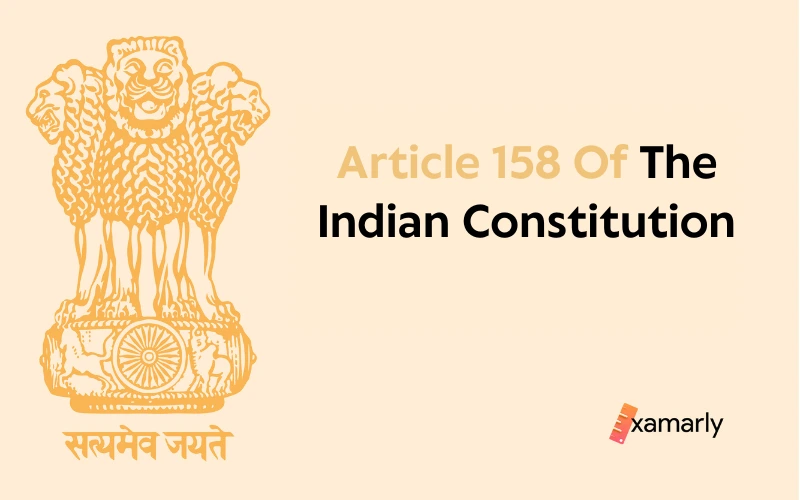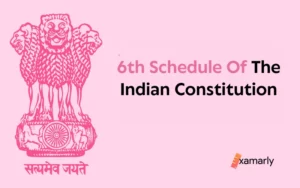The conditions for holding the post of governor are laid out in Article 158 of the Indian Constitution.
The said Article is mentioned in Chapter II of Part VI of the Constitution.
What is Article 158 of the Indian Constitution?
- It is not permissible for the Governor to be a member of either the House of Parliament or of a House of the Legislature in any of the states that are listed in the First Schedule. If a member of one of the Houses of Parliament or a House of the Legislature of one of those States is named governor, he is assumed to have resigned from that position as of the date he assumes his duties as governor.
- Governors are prohibited from holding any other office of profit.
- The Governor shall be deemed to use his official residences without having to pay rent, as well as to the emoluments, allowances, and privileges that Parliament may specify by law, or, in the absence of such a provision, those that are set forth in the Second Schedule of the Constitution.
- (3A) In the event that the same individual is appointed to serve as the Governor of two or more states, the emoluments and allowances that are payable to the Governor shall be divided among the states in such a manner and to such a proportion as the President may, by order, determine.
- During his tenure in office, the governor’s emoluments as well as allowances cannot be reduced.
Note: 7th amendment of the Indian Constitution amended Article 158 and inserted clause 3A to Article 158 respectively.
Conclusion
The Governor of the State of India is a constitutional head. He is appointed by the President of the Union. He holds the position for a term of five years. He is also a nominal head of the state.
Article 157 and Article 158 of the Constitution outline the requirements for holding the position of governor.
For Further Readings:
FAQs
What are the conditions for the Governor’s Position?
A person must fulfill a number of standards before being eligible for appointment to the position of Governor. These conditions of service are as follows:
1. He is ineligible to serve in the Lok Sabha or the Rajya Sabha. On his first day as governor, he must give up his position if he has previously served in either house.
2. He must abstain from holding any office of profit.
3. Raj Bhavan is made available to him for his dwelling without the requirement of paying rent.
4. His perks, benefits, and emoluments are decided by Parliament.
5. When a governor is in charge of two or more states, the emoluments, and allowances payable to him are split between those states in whatever proportion the President decides.
6. During his term of office, the emoluments and allowances he received from his position cannot be reduced by the Parliament.
Which amendment has revised Article 158?
The seventh amendment to the Indian Constitution added clause 3A to Article 158 and altered it.
What does Article 157 deal with?
Article 157 states the qualification for a person to be appointed as Governor. To become Governor of any State the said Article says that the person must be a citizen of India and he/she should be of at least 35 years of age.
What is the 2nd Schedule of the Constitution Of India?
A list of the perks and privileges that are bestowed upon different posts within the Indian government may be found in the 2nd Schedule of the Indian Constitution.
What are the qualifications required to become a Governor?
Governors simply need to fulfill two requirements, as opposed to the many requirements that must be met by members of the Lok Sabha or Rajya Sabha or even the Prime Minister or President to keep their positions:
a. He ought to be a citizen of India.
b. He ought to be at least 35 years old.
The government must adhere to the following two conventions before proposing a candidate for governor:
a. Someone from the same state cannot be chosen to serve as its governor. He must be an outsider with no connection to the state to which he is being elected.
b. The President consults with the Chief Minister before choosing a governor.
It should be noted that neither of the aforementioned conventions is infallible and has frequently been disregarded by the union administration.
How long does a Governor serve?
The governor’s time in office is typically for five years, however, it can be shortened prematurely by:
a. The president may remove the governor on the advice of the council of ministers, which is led by the nation’s prime minister.
b. It is not acceptable to remove governors without a good reason. If however a governor’s actions are validated by courts as unlawful and mala fide, it is the President’s responsibility to remove them.
c. Resignation from the governor.






